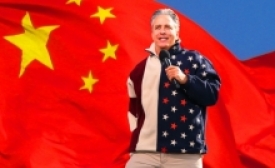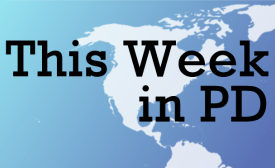digital diplomacy
Vietnam has arrested two democracy activists for posting articles critical of the government on the Internet, signalling a continued crackdown on dissent despite the early release of three dissidents last month.
Celebrities and world leaders are drawing attention to the plight of 300 Nigerian school girls kidnapped a month ago by Nigerian terrorists by using the social media campaign #BringBackOurGirls.
I had the pleasure of speaking with Mike Ardaiolo of the Public Diplomat, a podcast and website produced by students and scholars at Syracuse University’s public diplomacy program. I speak about my research into how digital platforms have been incorporated into US public diplomacy, and how this reflects broader institutional shifts in the practice and discourse of PD.
US computer chip giant Intel is to invest close to $6 billion in upgrading its Israeli production facilities, Israeli Economy Minister Naftali Bennett said on Thursday.

An exclusive interview with Gudabaihua (谷大白话) on American late-night talk shows.

Social media and new technology have spawned a new generation of digital diplomats. Meanwhile, governments try to defend against social media campaigns.
The US Department of State is transitioning into a digital context and public diplomacy is evolving in the process. Michael Ardaiolo discusses the U.S. public diplomacy’s shift toward a digital world with Dr. Craig Hayden.







